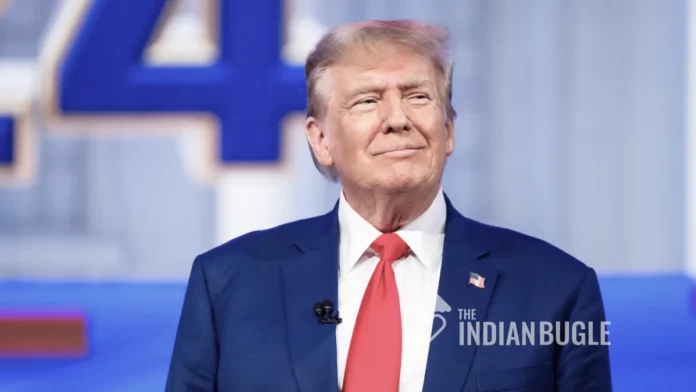January 16, 2024 : In a decisive win on Monday, former President Donald Trump clinched victory in Iowa’s caucuses, marking the initial milestone in the US presidential race. This triumph solidifies his position as the presumed Republican candidate set to challenge President Joe Biden in the upcoming November election.
Despite facing strong contenders like Nikki Haley and Ron DeSantis, Trump’s victory in Iowa, the first primary state, provides a significant indicator of his ability to translate his longstanding lead in polls into a potential return to the White House.
Major US networks swiftly projected Trump as the winner within just half an hour of the polls opening, revealing he secured nearly three-quarters of the early votes. The victory, particularly notable given Trump’s ongoing legal challenges, suggests that the controversies surrounding the 77-year-old former president have not dampened his support. Instead, it appears he has turned these legal issues into a rallying point to energize his followers.
Iowa, as the opening vote in the primary season, holds critical importance in narrowing down the field and propelling candidates into the subsequent stages of the race. Trump’s resounding win sets the stage for his campaign as he heads into New Hampshire with a commanding lead over his rivals.
Despite challenging weather conditions forcing cancellations of events, Iowa residents turned out in large numbers, demonstrating their commitment to the democratic process. As Trump claimed victory, the performance of his closest competitors, Nikki Haley and Ron DeSantis, remained uncertain.
The margin of Trump’s victory is anticipated to surpass the 12-point threshold his aides deemed a successful night. While Iowa only accounts for a small percentage of delegates in the overall nominating process, a strong performance here is crucial for candidates seeking momentum before the subsequent primaries in New Hampshire, Nevada, and South Carolina.
In comparison to his 2016 campaign, the Trump campaign demonstrated improved organization, with a well-established presence across Iowa. The former president himself, entangled in multiple legal battles, made limited public appearances in the final week leading up to the caucuses.
The outcome holds particular significance for Ron DeSantis, who invested substantial resources in Iowa, aiming for a second-place finish at the very least. Nikki Haley, closely contested by DeSantis, sought to downplay expectations, emphasizing a strong showing leading into the New Hampshire primary next week.
Haley has consistently highlighted her electability over Trump, underscoring the legal challenges the former president faces and pointing out the Republicans’ recent struggles in popular votes. In an interview with Fox News, she stated, “I think we’ve always had a target on our back because we’ve been the one moving up, everybody else is going down, and that’s a great thing.”
As the caucuses unfolded, involving town hall-style meetings, speeches, and debates, other candidates like biotech entrepreneur Vivek Ramaswamy and former Arkansas governor Asa Hutchinson also vied for attention. The caucuses are unique to the US election calendar, showcasing the intricate and grassroots nature of American politics.
The victory in Iowa propels Trump into the next phase of the Republican primaries, setting the stage for an intense and closely watched nomination race leading up to the November elections.
